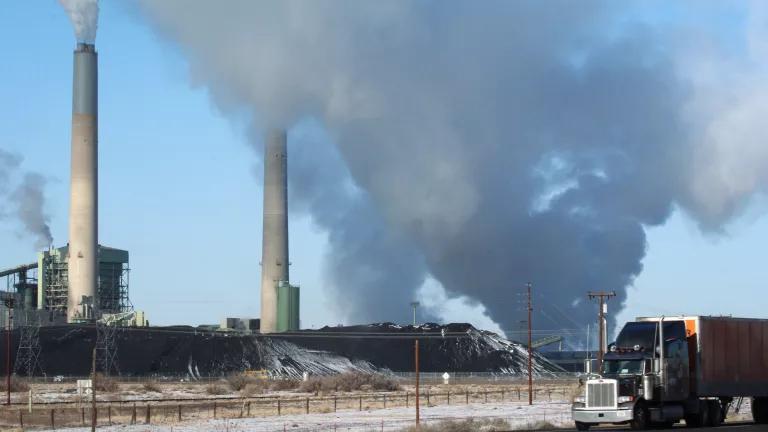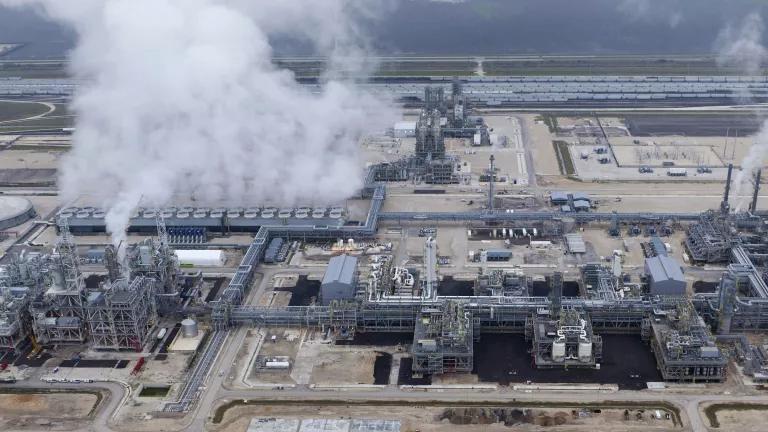Two Utah Oil by Rail Schemes Hit with Setbacks, Delays
Oil train projects aimed for the Colorado River are facing growing headwinds, with the Wildcat Loadout paused and the Uinta Basin Railway losing key permits.

Oil well in Utah's Uinta Basin.
For the past several years, oil industry players in Utah have been pushing these two projects that, taken together, would have allowed for production increases of 200,000-420,000 barrels of oil per day from the Uinta Basin. That kind of prospected growth, if fully realized, would be astonishing. At the low end, it would mean a 200% increase over historic production levels in the region. At the high end: 400%. If built, the projects are expected to generate up to 63 million metric tons of annual greenhouse gases—a climate impact the world simply cannot afford.
Climate problems are just the tip of the iceberg when it comes to risks created by the Uinta Basin Railway and the Wildcat Loadout expansion. For the 40 million people who rely on the already-stressed Colorado River for irrigation and drinking water, these projects would send hundreds of fully-loaded unit trains along a remote stretch of track through the Rocky Mountains and directly alongside the river. In reviewing the Uinta Basin Railway project alone, the U.S. Surface Transportation Board (USSTB) predicted that increased train traffic would cause at least one derailment per year, a risk that would increase even further if both projects were built.
The failure to quantify the unique risks of moving Uinta Basin crude oil alongside the Colorado River was one of the USSTB’s foremost failures. The project proponents claim that the Uinta’s waxy crudes are “clean up friendly,” but reality suggests this statement requires serious scrutiny. When spilled on roadways and other dry surfaces, it is likely that the Uinta’s waxy crudes are relatively easy to deal with. But crude oils that solidify quickly when spilled into water create enormous cleanup challenges and long-term contamination risks. Before any further permitting of these projects is even considered, there is a critical need for scientific exploration of the behavior of waxy crude oils spilling into water, especially fast-moving water bodies like the Colorado River. In addition, agencies permitting these projects must analyze the spill response limitations inherent in allowing projects like these to pass through remote, inaccessible regions.
Happily, there’s good news to report. In August, a federal appeals court threw out the USSTB’s permit for the Uinta Basin Railway citing that its environmental impact statement was woefully deficient. In January 2024, the U.S. Forest Service followed suit by withdrawing its permit for the construction of track through an especially remote area of the Ashley National Forest in Utah. These developments have also led the Bureau of Land Management to pause its consideration of the Wildcat Loadout expansion project, which has not yet undergone any environmental impact analysis.
While these developments don’t mean these projects are dead, the push for unchecked production proposed in the Uinta Basin is on hold for now. It remains to be seen whether the industry can somehow justify the environmental costs of these projects as they seek to appropriate critical public resources for their exclusive use. Either way, the deadly climate consequences and severe risks to the Colorado River have been delayed, and we will continue the work to make sure delays turn into permanent cancellations.




